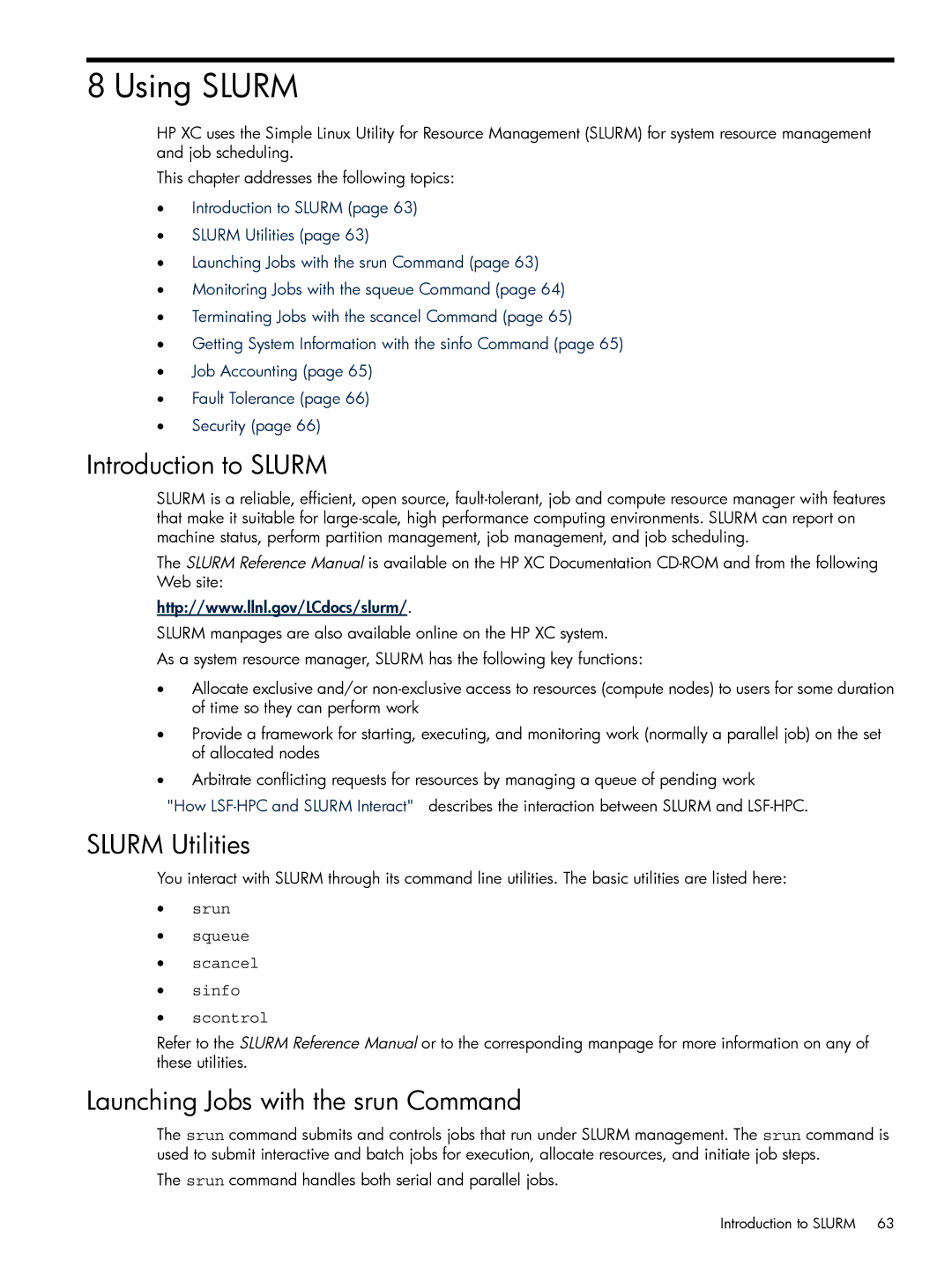8 Using SLURM
HP XC uses the Simple Linux Utility for Resource Management (SLURM) for system resource management and job scheduling.
This chapter addresses the following topics:
•Introduction to SLURM (page 63)
•SLURM Utilities (page 63)
•Launching Jobs with the srun Command (page 63)
•Monitoring Jobs with the squeue Command (page 64)
•Terminating Jobs with the scancel Command (page 65)
•Getting System Information with the sinfo Command (page 65)
•Job Accounting (page 65)
•Fault Tolerance (page 66)
•Security (page 66)
Introduction to SLURM
SLURM is a reliable, efficient, open source,
The SLURM Reference Manual is available on the HP XC Documentation
http://www.llnl.gov/LCdocs/slurm/.
SLURM manpages are also available online on the HP XC system.
As a system resource manager, SLURM has the following key functions:
•Allocate exclusive and/or
•Provide a framework for starting, executing, and monitoring work (normally a parallel job) on the set of allocated nodes
•Arbitrate conflicting requests for resources by managing a queue of pending work
"How
SLURM Utilities
You interact with SLURM through its command line utilities. The basic utilities are listed here:
•srun
•squeue
•scancel
•sinfo
•scontrol
Refer to the SLURM Reference Manual or to the corresponding manpage for more information on any of these utilities.
Launching Jobs with the srun Command
The srun command submits and controls jobs that run under SLURM management. The srun command is used to submit interactive and batch jobs for execution, allocate resources, and initiate job steps.
The srun command handles both serial and parallel jobs.
Introduction to SLURM 63
